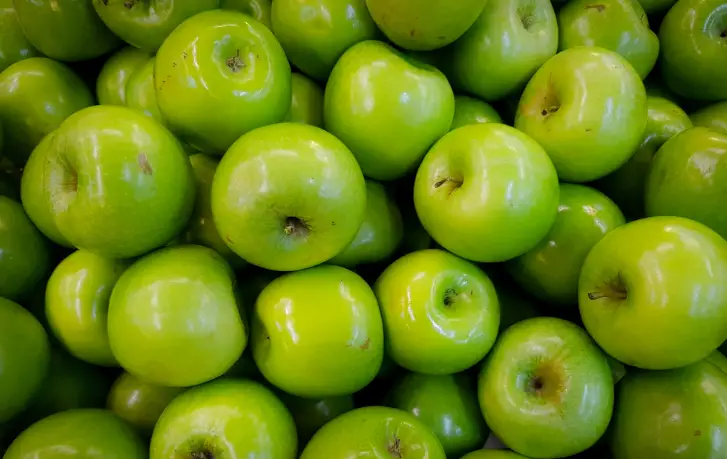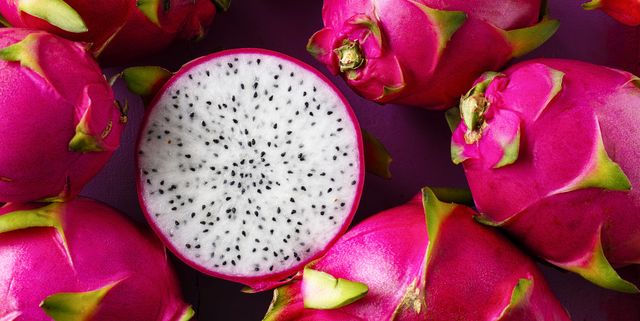Palm fruit oil is often put in dog food and snacks. We love our dogs and want to feed them food that’s good for them.
There are lots of different ideas about palm fruit oil for dogs online. It’s hard to know what’s true. This article helps explain facts and clear up confusion, so you can decide if you should give your dog palm fruit oil.
Palm fruit oil comes from the African oil palm tree that grows in places like Africa and Asia. It’s put in a lot of dog foods and snacks because it has a lot of saturated fat. This fat gives your dog energy and keeps them full for a long time.
Table of Contents
- Should Dogs Eat Palm Fruit Oil?
- How Palm Fruit Oil Can Affect Your Dog’s Well-Being
- Finding Better Oils for Your Dog
- Understanding Palm Oil in Pet Food: Ingredients and Labels Explained
- Frequently Asked Questions (FAQ)
- What is palm fruit oil?
- Can dogs eat palm fruit oil safely?
- Why do pet foods have palm fruit oil in them?
- Can you tell me about some good oils for dogs?
- Are palm fruit oil and palm oil the same thing?
- Is red palm fruit oil okay for dogs to have?
- What types of oils should dogs not eat?
- Does palm fruit oil come from coconuts?
- How are palm fruit oil and coconut oil different?
Should Dogs Eat Palm Fruit Oil?
Yes, palm fruit oil can be bad for dogs if they eat too much. Palm oil isn’t poison for dogs, but the saturated fat can upset their stomachs, cause diarrhea, and lead to a serious illness called pancreatitis.
Too much palm oil can lead to weight problems and heart issues for dogs. It’s also worth knowing that palm oil can be different depending on where it’s from, and some types can have things in it that are bad for dogs.
It’s a good idea to give your dog food without palm fruit oil or at least food that doesn’t have too much saturated fat. Instead, choose dog snacks made with better oils like olive oil or coconut oil. Always look at the ingredients in your dog’s food and talk to your vet if you’re worried about what to feed them.
How Palm Fruit Oil Can Affect Your Dog’s Well-Being
Let’s look at how palm fruit oil can affect your dog’s health:
- Digestive Issues: Foods high in saturated fat can make your dog’s stomach upset and cause diarrhea. They can also make their pancreas swollen, which stops it from working right.
- Obesity: Lots of saturated fat can make dogs really overweight. This can hurt their joints, make it hard for them to breathe, and even shorten their lives.
- Heart Disease: When dogs are overweight, they can get heart problems, which makes it hard for blood to move around in their bodies and can eventually stop their heart from working properly.
- Contaminants: Some palm oils can have things like heavy metals or chemicals, which are not good for dogs.
Not all palm oil is the same—some types are safer for dogs. To help keep your dog healthy, try not to give them foods with palm fruit oil (especially if they’re full of saturated fat).
Choose dog foods and treats with better oils like olive oil or coconut oil, and always check what they’re made of before you buy them. If you’re not sure about what to feed your dog or how much, it’s best to talk to a vet who can help you find the right kind of food in the right amounts for your dog.
Finding Better Oils for Your Dog
If you’re looking for better oils to give your dog, here are some tips:
- Talk to a vet: They can tell you what kind of oil and how much is best for your dog based on things like their age, weight, and health.
- Pick good oils: Go for oils that don’t have bad stuff in them and don’t contain harmful extras.
- Think about where the oil comes from: The way oil is made can affect how good it is for your dog. Try to find organic or non-GMO oils that are made cleanly.
- Find a balance: Oils should have a good mix of omega-3 and omega-6 fatty acids to help your dog’s skin, heart, and joints.
- Consider smoke points: Use oils that can be cooked at high temperatures without creating unhealthy chemicals.
Good Oil Choices for Your Dog’s Diet:
- Olive Oil: It has less saturated fat and is high in healthy fats, which is good for your dog’s tummy and skin. Choose extra-virgin, first-pressed olive oil for the best benefits.
- Coconut Oil: This oil has lots of health perks, like making your dog’s skin and coat shiny, boosting their immune system, and helping their digestion. Go for pure, unprocessed coconut oil for the most health benefits.
- Fish Oil: Packed with omega-3 fatty acids, fish oil is great for giving your dog a shiny coat, reducing swelling, and keeping their joints healthy. Make sure you pick a good brand and use the right dose so you don’t give them too much.
- Flaxseed Oil: This oil is full of omega-3s that help your dog’s skin stay smooth without added inflammation. It also helps their joints. Find a high-quality flaxseed oil and keep it fresh, so it doesn’t become bad and upset your dog’s stomach.
- Avocado Oil: This oil is loaded with good fats and antioxidants that help keep your dog’s skin and heart in good shape. Just stick to the right amounts based on your vet’s recommendations, and choose high-quality avocado oil.
Not all oils are the same, so make sure you’re picking the right kind for your dog’s needs. Always talk to a vet before you change your dog’s diet. They will help you find the best oils and keep track of your dog’s health to make sure they’re eating what’s best for them.
Understanding Palm Oil in Pet Food: Ingredients and Labels Explained
There’s a growing worry about palm fruit oil being used in pet foods. To cut costs, companies often use cheap stuff, like this not-so-good oil. This could lead to feeding pets foods that don’t meet their needs or might even harm them. The way pet food is labeled can also be tricky. When companies say “animal fat” or “vegetable oil,” they’re not telling you the whole story about where those oils come from.
It’s key for pet owners to know what’s in pet food. Start by really looking at the ingredient list so you can spot exactly what oils are inside. Instead of vague words, find clear ones like “olive oil” or “coconut oil.”
Also, try to find pet food from brands that really focus on quality and what’s good for pets. If you’re not sure what food is best, ask a vet for their professional advice.
We urgently need to make pet food labels clearer and ensure they’re about quality. Sadly, we can’t just wait for new laws to fix everything. They usually don’t go far enough to keep our pets safe and healthy.
So, it’s up to us. We need to get smart about what we’re feeding our pets and choose their meals carefully. Doing this helps us all support better nutrition for our furry pals.
Frequently Asked Questions (FAQ)
What is palm fruit oil?
Can dogs eat palm fruit oil safely?
Why do pet foods have palm fruit oil in them?
Palm fruit oil is popular in pet foods mainly because it’s cheap and can be heated to high temperatures without smoking. However, this oil is not very good for pets because it has a lot of saturated fat. To take care of your pet’s health, it’s better to pick foods that contain oils like omega-3 and omega-6 fatty acids, even though these oils might cost more. They are much healthier choices for your pet.
Can you tell me about some good oils for dogs?
There are several oils that are beneficial for dogs and these include olive oil, coconut oil, fish oil, and flaxseed oil. These oils are packed with omega-3 and omega-6 fatty acids that can help keep your dog’s heart, joints, skin, and fur healthy. Remember to talk to a vet before giving your dog new types of oil.
Are palm fruit oil and palm oil the same thing?
No, they’re not the same. Palm oil comes from the fruit of oil palm trees, whereas palm fruit oil comes from the kernels or seeds of the same trees. Both of them are used a lot in food and beauty products but palm fruit is less healthy because it’s got a lot of saturated fat.
Is red palm fruit oil okay for dogs to have?
No, it’s best to avoid giving red palm fruit oil to dogs. This oil has a high level of saturated fats which can make dogs sick, leading to issues like obesity, heart disease, and pancreatitis. For a healthier diet, choose different oils for your dog.
What types of oils should dogs not eat?
Dogs should steer clear of oils that have lots of unhealthy saturated fats. Some examples are palm fruit oil, red palm fruit oil, soybean oil, and corn oil. These can lead to bad health problems like getting overweight, heart problems, and pancreatitis. Instead, it’s wise to go for oils rich in omega-3 and omega-6 fatty acids. Options like olive oil, coconut oil, fish oil, and flaxseed oil are much healthier and can be really beneficial for your dog’s diet, helping them stay healthy and avoid big health issues.
Does palm fruit oil come from coconuts?
No, palm fruit oil isn’t made from coconuts. It’s extracted from the fruit of oil palm trees. Coconut oil is different because it’s made from coconut meat. Each oil is unique in how it’s made and how it affects health.
How are palm fruit oil and coconut oil different?
Palm fruit oil comes from the fruit of oil palm trees and has lots of saturated fat. Coconut oil, on the other hand, is made from coconut meat and has beneficial medium-chain fatty acids. People use palm fruit oil in various foods. Coconut oil is versatile and can be used for cooking, as well as taking care of your skin and hair.









